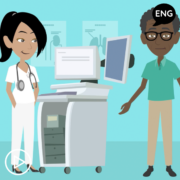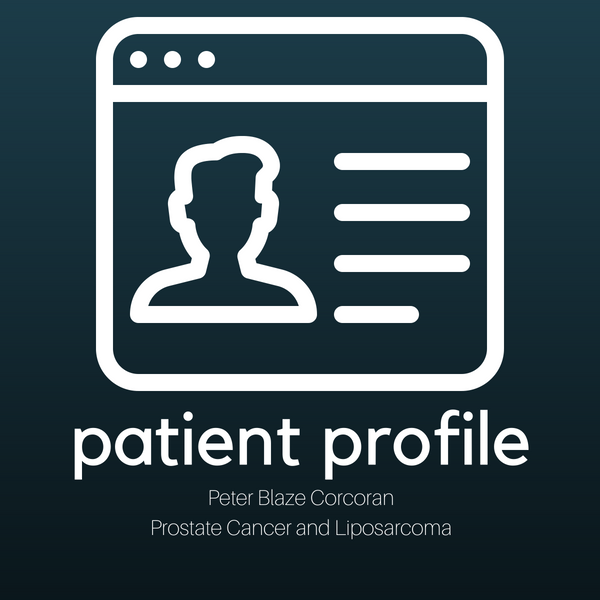You Have a Role in Your Prostate Cancer Care Decisions
You Have a Role in Your Prostate Cancer Care Decisions from Patient Empowerment Network on Vimeo.
What role do patients play in their prostate cancer care decisions? This animated video reviews the shared decision-making process and outlines steps for patients to engage in their care.
See More From Shared Decision Making: Navigating Prostate Cancer Care
Related Resources:

Building a Relationship With Your Prostate Cancer Healthcare Team |

|

|
Transcript:
Niki:
Hi, I’m Niki, and I’m a prostate cancer nurse practitioner. And this is Anthony, who is living with advanced prostate cancer.
[Disclaimer on screen: Patient experience depicted in this video is fictional.]
Anthony:
Thanks for joining us! In this video, we’re going explain why you should take an active role in your prostate cancer care and review steps to help you engage in the decisions that need to be made.
Niki:
That’s right, Anthony.
Which leads me to the term “shared decision-making.” You may have heard of this term already – basically, it means that you and your healthcare team collaborate on care decisions and the goal is to have YOU be at the center of these decisions.
Anthony:
That’s right! For example, when it was time to discuss my care plan, my doctor walked me through the considerations of each approach and how each option could impact my lifestyle. I asked questions and shared my goals during the conversations. And I felt HEARD.
Niki:
Exactly – that’s shared decision-making in action. When you are living with cancer, often the risks and benefits need to be weighed to decide which course of action could be best for your individual disease. So why is it so vital to be an active participant? Studies show that patients who engage in their care may have better outcomes and experiences1. And it will help you learn more about your disease and move forward with confidence.
Anthony:
Now that you know what shared decision-making IS and why you should become a partner in your care, let’s review steps that will help you become more engaged:
The first, and most important step, is to educate yourself about your disease.
Niki:
Your doctor’s office can be a great source of information and resources, so it’s a good place to start. And there are also several advocacy groups that provide educational materials, for instance: [links on screen as they are read]:
- Patient Empowerment Network, the creator of this video.
- The Prostate Cancer Foundation.
- The Prostate Cancer Research Institute.
- The Prostate Health Education Network, which focuses on services and support for Black men.
- And ZERO-The End of Prostate Cancer.
Anthony:
Once you learn more about your prostate cancer through resources like these, you will feel more empowered to voice your opinions. Remember, it’s important to speak up and ask questions at each stage.
Niki:
So, what else can you do to be a partner in your decisions?
- First, make sure you understand and communicate the goals of your care before making any decisions.
- Then, make sure you are informed about your options and ask for supporting materials if you need clarity.
- And ask how your lifestyle may be impacted by each approach.
- You should also discuss the risks and benefits of each option.
- Request resources to aid in decision-making and information that can help determine the best route for your individual disease.
- As always, bring a friend or family member and discuss your options with loved ones.
- Finally, remember YOU are at the center of your care. You should feel comfortable with any choice before you move forward.
Anthony:
Now that you’ve watched this video, make sure to download the guide that contains highlights of this discussion – and you can print it out or save it on your computer to reference in the future.
Niki:
Visit powerfulpatients.org/PC to access more videos with Anthony and me. Thanks for joining us!









